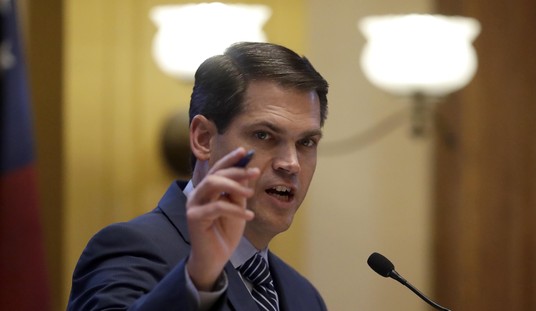The United Nations’ special rapporteur for counterterrorism and human rights unveiled a 23-page report Friday arguing that there’s “no evidence” tough immigration policies stop terrorism.
Ben Emmerson, a London barrister whose experience includes the Khmer Rouge tribunal and the International Criminal Tribunal for the Former Yugoslavia. was appointed to the position in 2011. In a UN address Friday, Emmerson said his report found “overly restrictive migration policies introduced because of terrorism concerns are not justified and may in fact be damaging to state security.”
“While there is no evidence that migration leads to increased terrorist activity, migration policies that are restrictive or that violate human rights may in fact create conditions conducive to terrorism,” he said.
Emmerson called the “trend of anti-terror measures being linked to the management of cross-border flows” something “based on the perception that terrorists take advantage of refugee flows to carry out acts of terrorism, or that refugees are somehow more prone to radicalization than others.”
“This perception is analytically and statistically unfounded, and must change,” he stressed. “…What is clear is that policies that respect human rights, justice, and accountability, and that manifest the values on which democracy is founded, are an essential element of effective counterterrorism policies. The further we move away from this, the more we concede to terrorist groups.”
The rapporteur said it was “in all of our interests to protect refugees and give them the opportunity to create a better future for themselves and their families.”
The report noted that recent attacks have raised fears about a “link between displacement and radicalization,” but “in the clear majority of cases, refugees and migrants do not pose a risk, but are in fact at risk, fleeing the regions where terrorist groups are the most active.”
In 2014, the report noted, more than 16 million refugees flowed out of the top five countries with the highest levels of terrorism.
“No matter the reason for their flight, people in such circumstances are entitled to protection from the devastating consequences of terrorist activity rather than being stigmatized as potential terrorists, and states must be cautious not to use security concerns as a means of denying humanitarian assistance to those migrants,” the report added.
It acknowledges, though, that “border controls are part of a state’s response to terrorist threat” before noting that “states have introduced stricter border controls, built fences to keep migrants out, engaged in push-back operations, criminalized irregular migration and abandoned pledges to accept refugees.”
“Far from increasing security, such approaches, which restrict access to safe territory, contribute to the establishment of chaotic and covert movements of people, including through trafficking, which might ultimately assist those intent on committing acts of terrorism.”
Border control, the report states, “should always comply with the principles of legality, proportionality, necessity and non-discrimination,” adding that “profiling practices based on assumptions that persons of a certain racial, national or ethnic origin or religion are particularly likely to pose a risk” are likely to violate those principles.
Information gathered on refugees should be “stored and shared with sufficient safeguards to protect rights and must not be shared with third countries that might expose migrants and refugees to human rights violations, including refoulement or inhuman treatment.”
The report called the “unlawful” practice of forcing refugees to give their fingerprints at European border registration “an affront to individual dignity” that
“may encourage the establishment of precarious covert routes between countries.”
“States must recognize that irregular migration is often a feature of the flight of genuine refugees. Moreover, the Special Rapporteur recalls that migration is not a crime. Accordingly, the term ‘illegal migrants’ should not be used to refer to migrants in an irregular situation.”
It adds that “neither the presence of an individual on a list as a terrorist suspect nor their membership in a group listed as a terrorist entity should… be the sole basis for denying an individual refugee status,” as the country of origin’s definition of terrorism could include “peaceful dissent or acts which are lawful under international humanitarian law.”
Decisions to expel previously approved refugees on the basis of terror links “must be non-discriminatory and proportionate, made on a case-by-case basis, through procedures which respect standards of due process, in which the threat to security posed by the individual is substantiated and in which the individual can provide evidence that might counter the allegations,” the report continues.
“…Asylum and migration policies that are restrictive or that violate human rights can have a counterproductive effect on the efforts of states to counter terrorism by creating more irregular migration and increasing violations of the human rights of migrants and refugees, marginalizing particular communities and reducing prospects for migrants, all of which could become conditions conducive to terrorism.”








Join the conversation as a VIP Member